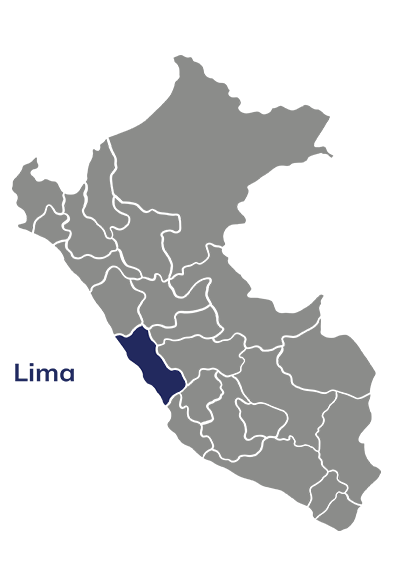Countries:
Peru
Status:
Completed
Sector:
GFS
Raising awareness and providing tools to identify climate-related risks and evaluate investment opportunities through a low-carbon, climate-resilient approach that emphasises inclusivity.
The goal of the project was to support Peru’s financial sector with integrating climate change risks into investment decisions, while catalysing sustained action on emission reductions. Filling the knowledge gaps on climate impacts was crucial, especially in areas that could affect Peru’s financial markets. By introducing relevant risk management approaches and analysing regulatory options, this project laid the foundation for counterparts to unlock new sustainable investment opportunities, accelerate the disclosure of climate risks and enhance the flow of capital towards a low-carbon economy.
Gender equality and social inclusion (GESI) also played a vital role, connecting women across the financial, environmental and climate sectors in Peru. This was achieved with the help of the MIC (Mujeres, Inversión y Clima) Network, set up to highlight their voices in wider discussions to support concerted climate action.
This project was delivered by Programa de Inversión Responsible (PIR), in partnership with ImplementaSur and 2° Investing Initiative.
"I think the financial sector has a lot that we can contribute to bridge the disconnect with small entrepreneurs and businesses in the forestry sector and help them overcome obstacles in accessing finance. The MIC group could be an interesting way of
linking with them.”
Franshesca Valverde
Vice President of ESG at AC Capitales SAFI and member of the MIC Network
“Climate change affects vulnerable populations to a greater extent, within which women are the main affected, especially in low socioeconomic strata. That is why the Network of Women, Investment and Climate is an ideal space to face this social problem – one that is already receiving more and more attention and analysis at a global level”
Kate Harrisson
British Ambassador to Peru,
2018 to 2022

People from the financial ecosystem trained in climate risk management, reporting and regulation
Pension funds’ investment portfolios assessed for transition risk exposure
Key policy proposals presented, responding to the financial sector’s identified needs
Women already actively involved in the MIC network
The project delivered a number of impactful outputs targeting key actors in the financial sector in Peru:
Created to connect women in the financial sector and women with livelihoods vulnerable to climate change
In collaboration with PRESENTE, delivered an information session for PIR partners on inclusion of LGBTQIA+ minorities in institutional policy
Actively prioritised balanced gender representation among workshop speakers and within the delivery team
Actively promoted inclusion, resulting in more diverse participation in PIR’s Board of Directors
Throughout the project, special attention was paid to women in the financial sector and other minorities to promote wider inclusion across activities. Beyond mainstreaming GESI throughout project activities, the project has also helped PIR Board of Directors reflect on gender inclusivity within the financial sector, leading them to actively promote the participation of women in its own Board of Directors.
The project also created the MIC Network, bringing together women in finance passionate about the climate. The network holds regular meetings to discuss issues around gender, women’s societal role, and climate activism – exploring how climate change disproportionately affects vulnerable women.
During MIC Network events, women learnt from each other’s experiences, shedding light on the reality of women in the Peruvian Amazon who work in forest conservation and the difficulties they face.
Overall, these meetings allowed women to create a safe space to talk openly about their experiences and challenges. It also linked women working in finance with the issue of climate change, integrating the two worlds.
Synergies have also been generated with other organisations, allowing PIR to expand the project’s scope and impact to reach more diverse groups – such as the network Amazonía Que Late for the work of the Women's Network, and an alliance with the right-based civil society organisation PRESENTE to achieve greater inclusion of the LGTBIQ+ population.

UK PACT (Partnering for Accelerated Climate Transitions) is a unique capacity-building programme. Jointly governed and funded by the UK Government’s Foreign, Commonwealth and Development Office (FCDO) and the Department for Energy Security and Net Zero (DESNZ) through the UK's International Climate Finance, it works in partnership with countries with high emissions reduction potential to support them to implement and increase their ambitions for tackling climate change.
© Copyright 2025 UK PACT Privacy Notice Cookie Policy